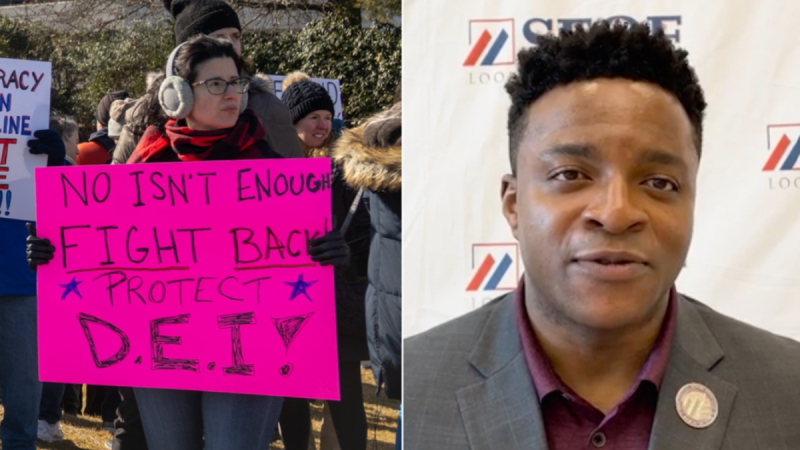President Donald Trump’s executive order ending diversity, equity and inclusion (DEI) programs in the federal government has returned financial power to the people, OJ Oleka, CEO of the State Financial Officers Foundation, told Fox News Digital.
Oleka said there’s a ‘new sheriff in town’ and that Trump is ‘making good’ on his promise to eliminate DEI by shifting financial policies ‘away from the left and back to the center,’ empowering state financial officers and building trust with the American people.
‘We know that when companies focus on business, their business does better. If their business does better, shareholders make more money, their employees have a better quality of life within their business and their consumers get a better product,’ Oleka told Fox News Digital at the State Financial Officers Foundation conference in Orlando, Florida.
Oleka said focusing on financial returns and merit-based incentives over DEI or environmental, social and governance (ESG) policies creates ‘more money for shareholders, better culture in the office for employees and better products for consumers and customers,’ exactly what state financial officers have been asking for.
‘The American people want every individual to succeed,’ Oleka said. ‘They want people to succeed on their merit, on their ability, on their skill. It’s very important to us as Americans. But what they don’t want is for people to get preferences just because of some political ideology.’
He said there are misconceptions about DEI ‘because people hear diversity, equity and inclusion, and they think, ‘Well, those are good things. I support diversity. I want people to be included, and people should have the resources that they need.’
‘To be very clear, when we’re talking about DEI, we’re saying that DEI is trying to provide racial or gender preferences for people based on past grievances. It effectively has nothing to do with merit or looking at somebody’s skill for a job or for an opportunity.’
Equal opportunity is giving people access to create their own opportunities, to try to be as successful as they can be with their skills, ability and merit, according to Oleka.
Oleka explained that DEI is subjective because it prefers ‘folks based on what you think is important, based on your own politics.’
‘It’s bad to say, from a company’s perspective, ‘Let’s just hire people based on race, based on gender,’ as opposed to skill and ability,’ Oleka said.
‘It’s bad because it can harm the performance of what that company actually does with their business responsibilities. That matters to our financial officers because they invest in a lot of these companies. It’s their job as fiduciary leaders to make sure that the pensions that they invest, the public funds that they invest by virtue of their positions, are actually done so by companies and with funds where the returns are going to be high.
‘We can’t guarantee that the returns are going to be as high as they can be if the companies aren’t even focusing on their specific mandate, on their responsibility. Instead, they’re focusing on their politics and trying to force an ideology or social agenda through their businesses. That’s not what business is for.’
Oleka said his experience as someone with a Ph.D. in higher education who is also the son of Nigerian immigrants informs his rejection of political ideology or agendas in government-funded programs, including in public education, because these policies don’t improve students’ learning experience or academic performance.
‘That doesn’t actually contribute to kids’ learning,’ Oleka said. ‘It doesn’t contribute to human flourishing. There really is no reason why people’s taxpayer dollars should be spent on that.’
Oleka told Fox News Digital the Orlando conference was critical to reminding state financial officers across the country they are not alone in pushing back against DEI and ESG policies that were promoted by former President Joe Biden’s administration.
‘It goes back to what I think most Americans believe. Their state government is closer to them than the federal government,’ he said. ‘As a result, state leaders should have more power, as it relates to their finances, than the federal government, and what a state leader should do with that power is give it back to the people.’
By empowering state financial officers to focus on financial returns and fiduciary duty instead of ideology and politics, Oleka said more Americans are incentivized financially.
‘It’s important that we have that same kind of leadership in the White House at the state level, making good on their promise to bring a Golden Age to America and to each state,’ he said.

